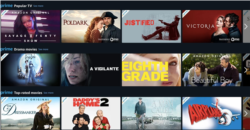America is the land of plenty and it’s stressing some people out.
“We believe that whatever we choose is kind of a reflection of who we are,” says Thomas Saltsman, senior lab director of the Social Psychophysiology Laboratory at the University at Buffalo.
“Freedom and choice are so important to us and we think of our choices as really being able to communicate information about ourselves and we very much prioritize that in any kind of Western civilization.”
Americans tend to feel so defined by their choices that having an abundance of options can make the weight of each decision, no matter how insignificant, feel more burdensome.
“If I make a poor choice and I only have two or three options, it's very easy for me to blame the lack of options,” Saltsman says. “When we're given so many options and we still feel like we didn't pick something that's good, that kind of feels like it's a direct reflection of us.”
People can essentially be divided into two categories when it comes to making choices, according to previous research. There are the “maximizers” who strive to pick the best possible option every time, no matter how minor or important the decision. The “satisficers” are much more likely to make snap decisions because they’re just trying to find something that's good enough.
Maximizers tend to regret their decisions more in the long run, but that doesn’t mean the satisficers are less anxious about making choices. Saltsman’s research suggests satisficers’ stress responses show they have a more negative physical reaction — their body reacts as if it’s being threatened — when they have to make a decision.
“One possibility that we've been thinking about is that satisficers kind of give up on decisions because essentially they don't feel as though they have the ability to make the best decisions,” he says.
Choice overload can paralyze people into avoiding decision-making. Saltsman thinks the abundance of options might be the cause of day-to-day malaise in modern American society. So how to cope in a world full of choices — from what to watch on TV, to what cereal to eat, and which sneaker to buy?
“Somehow decreasing the weight of these of these choices,” says Saltsman, “and realizing that many of the decisions that we made when we feel this sort of decision paralysis, whether it's scanning through Netflix or whether it's trying to figure out what to order on a menu, these things are not going to define us. In most cases, they're not going to, you know, change our life dramatically.”










